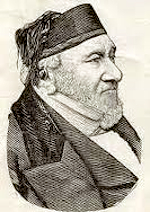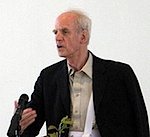By Anthony O’Hear.

Euripides may not have been surprised.
ONLY LAST SPRING, looking at the so-called Arab Spring, we reflected on the volatility of swirling crowds on the streets. We still have no idea how the events in Egypt and Tunisia earlier this year will turn out, even less whether they will be ultimately for the good or the bad, nor whether things will turn out well in Libya or Bahrein or the Ivory Coast (anyone remember that?). In Athens, too, not for the fist time, politics seemed to be being conducted on the street rather than in the debating chambers of Parliament.
The unexpectedness of all these events forcefully reminded us of the shifting sands on which the apparently smooth surface of settled political order rests. It also demonstrated the power of the use of so-called social media by those orchestrating events on the streets in these various places.
Continue reading “• Fire this time: How the Arab Spring plays in London.” »
By ANNA LEKAS MILLER [The Nation] –During the 1930s and ’40s, Alan Lomax and his father John Lomax traveled throughout the American South searching for the work songs, spirituals and folk tales that gave the region it’s unique identity. They met with field hands, prisoners and former slaves, and heard the songs they had been singing for decades, unaware of the sudden craze for jazz and blues music. The rich archive of American music the Lomaxes recorded ultimately set the standard for folk authenticity that invigorated the folk revival of the 1960s. Continue reading “• Low-fi Lomax: the other America’s music man.” »
Saturday, August 27, 2011
By Helen Hunt Jackson.

Irene.
PHYSICIANS TELL US THAT there is no known disease, no known symptom of disease, which hysteria cannot and does not counterfeit. Most skilful surgeons are misled by its cunning into believing and pronouncing able-bodied young women to be victims of spinal disease, “stricture of the œsophagus,” “gastrodynia,” “paraplegia,” “hemiplegia,” and hundreds of other affections, with longer or shorter names. Families are thrown into disorder and distress; friends suffer untold pains of anxiety and sympathy; doctors are summoned from far and near; and all this while the vertebra, or the membrane, or the muscle, as it may be, which is so honestly believed to be diseased, and which shows every symptom of diseased action or inaction, is sound and strong, and as well able as ever it was to perform its function.
Continue reading “• Pouring cold water on media hysteria.” »
 By MARILYN McCABE [Numero Cinq] – It became something of a tradition for French composers in the late 19th and early 20th centuries to set lyric poems by their poetry contemporaries to mélodies for solo voice and piano. Inspired by the poetry of the likes of Verlaine and Baudelaire, composers from Berlioz to Saint-Saens created these musical settings, attempting to “translate,” in a way, the lyric into a musical format that created a form greater than the two elements.
By MARILYN McCABE [Numero Cinq] – It became something of a tradition for French composers in the late 19th and early 20th centuries to set lyric poems by their poetry contemporaries to mélodies for solo voice and piano. Inspired by the poetry of the likes of Verlaine and Baudelaire, composers from Berlioz to Saint-Saens created these musical settings, attempting to “translate,” in a way, the lyric into a musical format that created a form greater than the two elements.
Continue reading “• A birthday song for Apollinaire.” »
Thursday, August 25, 2011
By Ezra Pound.
It is no more ridiculous that a person should receive or convey an emotion by means of an arrangement of shapes, or planes, or colours, than that they should receive or convey such emotion by an arrangement of musical notes.
 I SUPPOSE THIS PROPOSITION is self-evident. Whistler said as much, some years ago, and Pater proclaimed that “All arts approach the conditions of music.”
I SUPPOSE THIS PROPOSITION is self-evident. Whistler said as much, some years ago, and Pater proclaimed that “All arts approach the conditions of music.”
Whenever I say this I am greeted with a storm of “Yes, but” . . . s. “But why isn’t this art futurism?” “Why isn’t?” “Why don’t?” and above all: “What, in Heaven’s name, has it got to do with your Imagiste poetry?”
Let me explain at leisure, and in nice, orderly, old-fashioned prose.
We are all futurists to the extent of believing with Guillaume Appollonaire that “On ne peut pas porter partout avec soi le cadavre de son pere.” But “futurism,” when it gets into art, is, for the most part, a descendant of impressionism. It is a sort of accelerated impressionism. Continue reading “Vorticism.” »
Wednesday, August 24, 2011
By A.E. STALLINGS [Poetry Magazine] – Greeks spend a greater portion of their income on produce than any other European nationality. Television crews reporting on inflation and the crisis often focus on the farmers’ markets. The parsley index, I call it. Under the drachma, a bunch of parsley would run you a hundred drachmas. Now it is fifty Euro cents. That’s a seventy-five percent markup once you convert the currency.
Continue reading “• The cost of going green in Greece.” »
By DAVID BLACKBURN [The Spectator] – This is the age of the social network. ‘Re-tweet’ has been officially recognised by both dictionaries as a noun and a verb. It has been joined by an additional definition of ‘cougar’, a noun to describe an older women seeking sex with a much younger man, and ‘Textspeak’, a noun to describe the truncations and abbreviations that are used in text messages, many of which have gone into the language: Lol, WTF, M8 and so forth, as well as the mock-Jamaican patois that has become so infamous in light of the recent riots. And I’m afraid that the exploits of many of our most loved footballers will be immortalised with the formal recognition of the verb ‘to sext’, which, alarmingly, my spellchecker already acknowledges as legit. Continue reading “• A brabble at an aerodrome? WTF, m8?” »
 By DANIEL MENDELSOHN [The New Yorker] – As Wyatt Mason points out in the vigorous and sensible introduction to his translation of the poet’s letters, as much as we now like to romanticize Rimbaud as a Dionysian rebel, spontaneously tossing off revolutionary verses, the fact is that he made himself a poet by following a distinctly Apollonian trajectory—“a long, involved, and sober study of the history of poetry.”
By DANIEL MENDELSOHN [The New Yorker] – As Wyatt Mason points out in the vigorous and sensible introduction to his translation of the poet’s letters, as much as we now like to romanticize Rimbaud as a Dionysian rebel, spontaneously tossing off revolutionary verses, the fact is that he made himself a poet by following a distinctly Apollonian trajectory—“a long, involved, and sober study of the history of poetry.”
Continue reading “• Rimbaud: ‘present at the hatching’.” »
by JOHN R. MacARTHUR [Le Monde Diplomatique] – As of 1 November 2010 General Motors was a ward of the federal government, the country was in prolonged economic slump, and there were 86 assembly jobs in the Fostoria factory. The remaining Autolite employees were there to make just the ceramic insulators around the plug. The rest of the jobs had moved to a maquilladora in Mexicali, where nearly 600 Mexicans were manufacturing mostly Motorcraft spark plugs, the house brand of Ford Motor Company, healthiest of the Big Three US auto companies.
The crucial difference between Mexicali (just south of the border from Calexico, California, on the Baja peninsula) and Fostoria was the wage scale: in Fostoria, unionised production workers made an average $22 an hour, including benefits, for a 40-hour week; in Mexicali, workers on the first two shifts made 15.5 pesos (about $1.83) an hour for a 48-hour week. Continue reading “• Nafta magic: making whole towns disappear.” »
By CHRISTOPHER HITCHENS [Slate] – I realized that the collapse of British society into a Hobbesian nightmare of mutual predation and despair was still some distance off when I caught two little straws in the wind. The first was a well-framed photograph of a badly scorched bit of London, taken on the morning after a night of riots and vandalism. Apart from heavily accoutered cops, the only human figures on the scene consisted of a forest of sleeveless forearms, all brandishing the long handles of mops and heavy-duty scrubbing brushes. The ordinary working day had scarcely begun, but the process of digging out and cleaning up, inaugurated by the volunteer locals, was already under way. Of course, I thought to myself. Inflict a physical disaster on any British city, but especially on London, and the inhabitants seem to know, without any previous training for the role, that they have been cast in a remake of Britain Beats the Blitz.
Continue reading “• Britain’s latest blitz.” »
Thursday, August 18, 2011
 By NICK O’HEAR [The Fortnightly Review] – On 4 August this year, BBC Radio 4 broadcast a debate from the London School of Economics between Keynesians and Hayekians.
By NICK O’HEAR [The Fortnightly Review] – On 4 August this year, BBC Radio 4 broadcast a debate from the London School of Economics between Keynesians and Hayekians.
The issue they were debating was how to get the world out of the current economic mess. Keynesians took the position that, despite huge and growing government debts, we should hold our nerve, spend more to boost a faltering economy, and thereby create more wealth and more tax. Hayekians simply thought that national debts are far too great, we must swallow the bitter pill and spend less. Keynesians countered that the economy would shrink even further, thus compounding the problem.
One doesn’t expect much from the LSE, and the debate lived up to our expectations. The argument meandered along these lines until a vote of cheers came down apparently in favour of the Hayekians. Perhaps these were cheers of relief that this tedious debate was over and, as announced, they were all off to the pub. Continue reading “• Keynes, Hayek, the LSE, and manufacturing.” »

Fig 1 – Click to enlarge.
By PETER WEST [Common-Place] – On November 15, 1850, at the American Hall in Hartford, Connecticut, Otis Bullard debuted his “Panorama of New York City,” a 3,000-foot-long painting depicting the streets, residents, and sights of lower Manhattan. The exhibition’s six-foot-high canvas was rolled, in several sections, onto cylinders, and then slowly unfurled before an audience who had paid twenty-five cents each for a two-hour presentation. Like other moving panoramas, Bullard’s transformed its subject into a pictorial narrative: from the corner of West Street and Cortlandt Street, the panorama’s virtual stroll took viewers down to the Battery, then east to Broadway, and then back uptown along the city’s most famous thoroughfare to Union Square, where the exhibition concluded. Starting his panoramic tour at the island’s westernmost edge, where disembarking ferry and steamboat passengers encountered the waterfront hotels of West Street, Bullard placed his viewer in the position of a visitor arriving from the mainland United States.
Continue reading “• A long island: Manhattan – 3000 feet by six feet.” »
Saturday, August 13, 2011
 By GEOFFREY WHEATCROFT [TLS] – One evening in October 1840, the people of Constantinople saw an unlikely sight. Wending slowly through streets filled with horses, donkeys and camels, as well as a noisy human throng, came a procession of six soldiers and six torchbearers preceding two carriages. They were heading for the palace of Abdul Mecid, the very young man, not yet twenty, who had recently succeeded as Sultan of the Ottoman Empire, not to say Successor of the Prophet of the Lord of the Universe. His visitor was Sir Moses Montefiore, a hugely rich financier who had come from London representing the British government, the mightiest power on earth, but also on behalf of a people then far from mighty in temporal terms, though much older than the Ottomans, England or Islam.
By GEOFFREY WHEATCROFT [TLS] – One evening in October 1840, the people of Constantinople saw an unlikely sight. Wending slowly through streets filled with horses, donkeys and camels, as well as a noisy human throng, came a procession of six soldiers and six torchbearers preceding two carriages. They were heading for the palace of Abdul Mecid, the very young man, not yet twenty, who had recently succeeded as Sultan of the Ottoman Empire, not to say Successor of the Prophet of the Lord of the Universe. His visitor was Sir Moses Montefiore, a hugely rich financier who had come from London representing the British government, the mightiest power on earth, but also on behalf of a people then far from mighty in temporal terms, though much older than the Ottomans, England or Islam.
Continue reading “• Moses Montefiore calls on the Successor of the Prophet of the Lord of the Universe.” »

Charles Taylor.
By MARK OPPENHEIMER [The Nation] – Like many religious philosophers, [Charles] Taylor sees the foregrounding of earthly life, as opposed to eternal life, as one aspect of modernity. This worries him, because seeing one’s bodily survival and flourishing as the ultimate goal of existence tends toward selfishness. In “A Catholic Modernity?,” my favorite essay in Dilemmas and Connections, Taylor discusses possible alternatives to the culture of earthly life. One alternative comes from Nietzsche, who “rebelled against the idea that our highest goal is to preserve and increase life, to prevent suffering…. Life itself can push to cruelty, to domination, to exclusion, and, indeed, does so in its moments of most exuberant affirmation.” Another alternative comes from Christianity, which, especially in Catholicism, can give license to asceticism, monasticism and other denials of aspects of life.
Continue reading “• Charles Taylor: breaking with Christendom to save Christianity.” »
By NOURIEL ROUBINI [Project Syndicate] – The eurozone crisis is reaching its climax. Greece is insolvent. Portugal and Ireland have recently seen their bonds downgraded to junk status. Spain could still lose market access as political uncertainty adds to its fiscal and financial woes. Financial pressure on Italy is now mounting.
By 2012, Greek public debt will be above 160% of GDP and rising. Alternatives to a debt restructuring are fast disappearing. A full-blown official bailout of Greece’s public sector (by the International Monetary Fund, the European Central Bank, and the European Financial Stability Facility) would be the mother of all moral-hazard plays: extremely expensive and politically near-impossible, owing to resistance from core eurozone voters – starting with the Germans.
Continue reading “• Nouriel Roubini: breaking with Greece to save the eurozone.” »





























